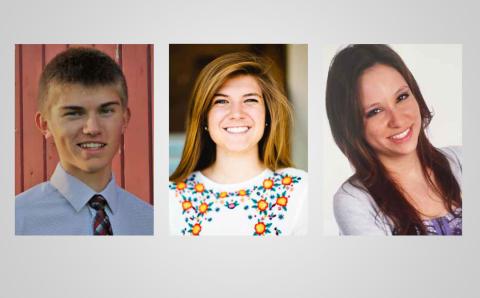My dad died seven years ago at the age of 62. On top of his 20-year struggle with multiple sclerosis, Dad received a diagnosis of stage IV kidney cancer in 2011. In the span of a few short weeks, my parents and the rest of our family found ourselves making decisions along a surreal continuum of quantity versus quality of days. We were thrust into what the contemporary testimony Our World Belongs to God calls “life’s raw edges.”
I am still in awe of how the body of Christ honored the sacred trust of my dad’s life (OWBTG, 44) in the midst of our sorrow. If I close my eyes, I can see the tenderness of the hospice nurse. I hear my parents’ small group enveloping us with songs from the backyard as we grieved that evening. I even feel the embrace of four members from the church who called me and drove five hours to show up for the visitation and funeral. In the shadow of Dad’s death, we received strength, healing, and hope through the community of God’s people (34).
Looking back, I recognize now how those days reverberated with the lived truth of the contemporary testimony. Without tying a nice, neat bow around the suffering we all encounter, this testimony provides hope and assurance that we always live within the grasp of God’s fierce love (5).
From beginning to end, Our World Belongs to God testifies that God is fully present and involved in our lives. “God has not abandoned the work of his hands” (4), but “set out on the long road of redemption” with “patience and tender care” (18). Joining “our humanity in Jesus Christ” (23), God chooses us so that we might “become like [Jesus] in every way” (26). Moreover, the testimony declares that on Pentecost Jesus drenched “his followers with his Spirit, creating a new community where Father, Son, and Holy Spirit make their home” (28), a gift that anticipates the new creation, when we will “dwell forever in the presence of God” (56). These assurances wrap us within the strong yet gentle arms of our Savior, who is “God with us” in all circumstances.
Even more, Our World Belongs to God overflows with compassion. Early on, it recognizes that we “struggle with the spirits of this age” (3) and in our sin fear “the nearness of God” (13). Acknowledging that we are “sinners who offer nothing but [our] need for mercy” (26), this testimony speaks gently of those who feel “nameless in the bustling crowd” (34), of the church being a “broken communion in a broken world” (40), and of a world in which “millions face confusing choices” (42). Because God’s “compassion knows no bounds” (42), we have hope that God will wipe away every tear (56).
In the certainty of God’s compassion, neither our sorrows nor our sins form the end of our stories. Rather, we “live confidently, anticipating his coming, offering him our daily lives” (57). God sends us into our own neighborhoods (41), whether single or married (46), in education (47), work (48), and rest (49). While we trust that “our hope for the new creation is not tied to what humans can do” (55), Our World Belongs to God invites us to see science (50), creation (51), and government (52-54) as gifts to be stewarded in service of the common good in anticipation of when God will make everything new (58).
Our World Belongs to God is a powerful testimony to God’s abundant grace. Within it, we are held by God’s steadfast presence, we encounter God’s compassion, and we are ushered into living confidently in the grasp of God’s fierce love, even when we find ourselves at “life’s raw edges.”
Discussion Questions
- What has been your personal experience with the contemporary testimony Our World Belongs to God?
- What parts of the testimony do you appreciate the most?
- What are some examples of “lived truth” from either our contemporary testimonies or our confessions that you have witnessed or experienced?
- How can a church better utilize the contemporary testimony in its life and ministry?
About the Author
Chris Schoon serves as the Director of Faith Formation Ministries for the Christian Reformed Church and is the author of Cultivating an Evangelistic Character (Wipf & Stock, 2018).









